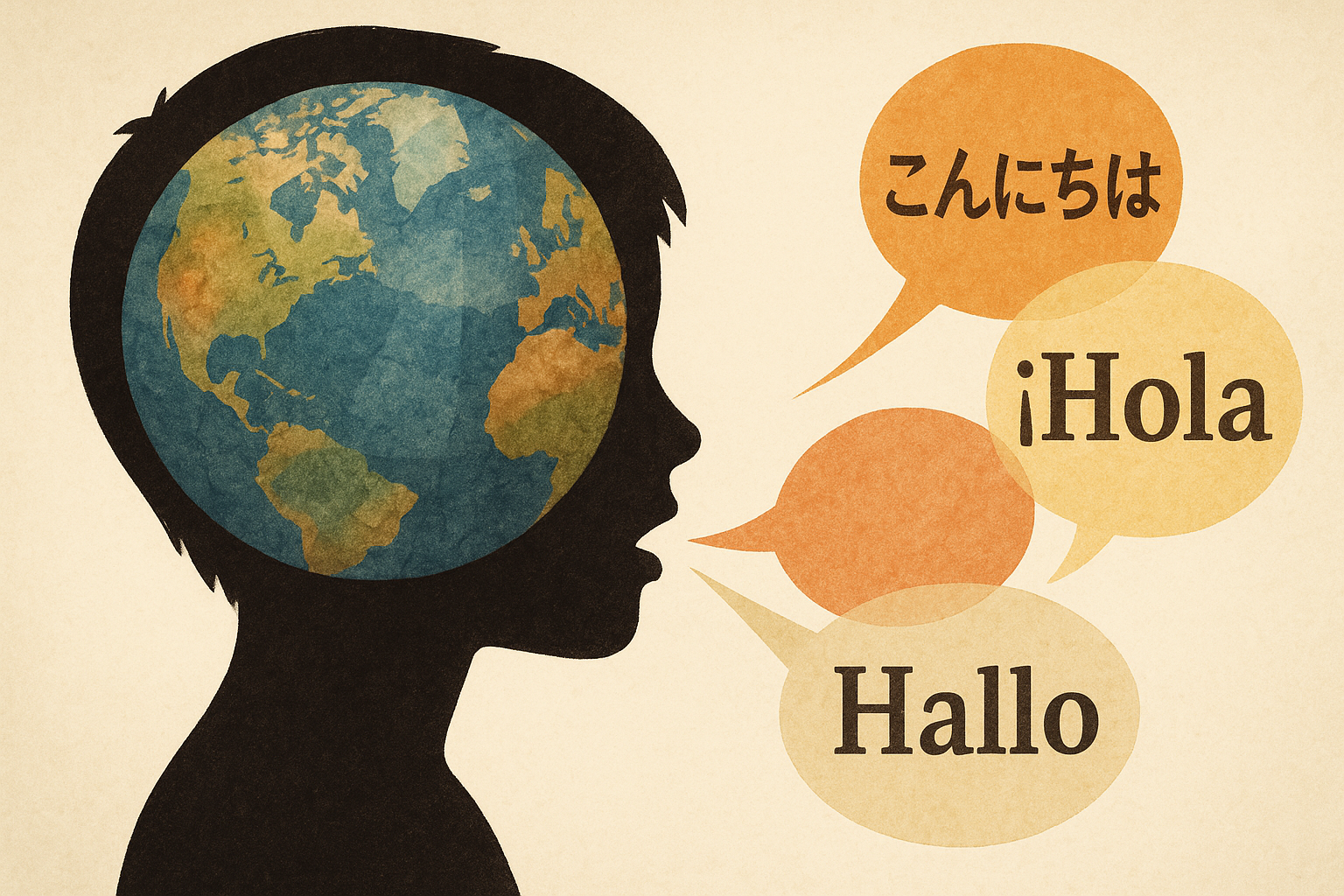What language does a person dream in if they grew up speaking Japanese at home, learned German from their neighbors, and studied in English at an international school in Berlin? The question isn’t a riddle; it’s a window into the fascinating, complex world of Third Culture Kids (TCKs). These are individuals who have spent a significant part of their developmental years in a culture other than their parents’ or their country of nationality. Their lives are a rich tapestry woven from multiple languages, customs, and worldviews, and nowhere is this more evident than in the way they speak.
For TCKs, language isn’t just a set of words; it’s a map of their lives. Their unique linguistic identity—marked by fluid code-switching, a chameleonic accent, and a deep connection between words and belonging—challenges our conventional understanding of what it means to be a “native speaker.”
The TCK Linguistic Mosaic
A monolingual person’s language is like a single, solid-colored fabric. A bilingual’s might be a reversible jacket. A TCK’s linguistic world, however, is a mosaic, with each tile representing a different language used for a specific purpose or in a particular domain of life.
Consider the example of ‘Anya’, a fictional but representative TCK:
- The “Heart” Language (Russian): Spoken with her parents and family. This is the language of childhood, emotion, and unconditional love. It’s the language she uses for comfort and deep-seated feelings.
- The “Host” Language (Thai): Learned while living in Bangkok for eight years. This is the language of the everyday—for navigating markets, ordering food, and casual interactions. It’s practical, functional, and tied to a specific physical place.
- The “Bridge” Language (English): The language of her international school. This is the language of academia, global friendships, and intellectual debate. It’s the common denominator that connects her to fellow TCKs from Korea, Brazil, and Sweden.
Anya isn’t simply trilingual. Each language holds a different emotional weight and serves a distinct function. She might express frustration with an English idiom learned from a friend, count in Thai out of habit, and whisper a Russian term of endearment to a pet. This compartmentalization is a hallmark of the TCK experience, creating a linguistic profile that is deeply personal and context-dependent.
Masters of the Code-Switch
One of the most distinctive features of TCK speech is code-switching—the practice of alternating between two or more languages or varieties of language in conversation. To an outsider, it might sound like a jumbled, confused way of speaking. But for TCKs, it’s a highly sophisticated and nuanced tool.
They don’t just randomly mix words. TCKs code-switch for specific reasons:
- For Precision: Sometimes, a word or phrase in one language captures a concept more perfectly than in another. A TCK might be telling a story in English about their time in Spain and use the word “sobremesa” because there is no single English equivalent for the time spent relaxing and chatting at the table after a meal is finished.
- To Signal Identity: When two TCKs meet, code-switching is a powerful way to establish a shared identity. Dropping a term from a common host country or using the particular English cadence of the international school circuit is a way of saying, “I see you. You’re one of me.”
- For Emotional Resonance: As with Anya’s “heart” language, certain emotions are inextricably tied to a specific tongue. A TCK might revert to their family’s language when expressing deep affection or anger, as those were the words used to convey such feelings during their formative years.
This seamless blending is often subconscious, a natural result of having multiple languages active in the brain simultaneously. It’s the native language of the “third culture” itself—a hybrid, adaptive, and incredibly efficient mode of communication.
The “Placeless” Accent
“So, where are you from? I can’t place your accent.”
This is a question that haunts many TCKs. Their accent is often the first clue that they don’t fit neatly into a geographical box. A TCK who is an American citizen but grew up in Japan and Switzerland might have an accent that sounds mostly American, but with a British-inflected “r,” a Japanese-like flatness of intonation, and a sprinkling of French vowel sounds. To an American, they sound slightly foreign. To a Brit, they sound American. To a Japanese person, they sound distinctly non-Japanese.
Their accent becomes a phonetic passport, stamped with the sounds of every place they’ve lived, yet valid in none of them as a native.
This “placeless” or “transatlantic” accent is a direct result of acquiring language in a phonetically diverse environment. Children are incredibly adept at mimicking the sounds they hear. A TCK’s brain cherry-picks phonetic features from teachers, friends, and media from all over the world. The result is an accent that is perfectly intelligible but lacks a clear geographical anchor.
While this can be a source of insecurity, leading to a feeling of being a linguistic outsider everywhere, it can also be a source of connection. For TCKs, hearing that familiar, unplaceable accent in another person is an instant sign of a shared experience. It’s the sound of “home”—not a place on a map, but a global, migratory community.
Language, Identity, and Finding “Home”
Ultimately, the linguistic identity of a TCK is a reflection of their existential reality. The constant question of “Where are you from?” is difficult because the answer isn’t a city or a country; it’s a story. Their language tells that story.
The fluidity of their speech mirrors the fluidity of their identity. They belong everywhere and nowhere, all at once. This can be challenging, creating a sense of rootlessness. However, it also fosters incredible adaptability, cultural empathy, and a truly global perspective.
So, what language does our TCK from the beginning dream in? The answer is as complex as they are. They might dream in Japanese when the dream features their mother. They might navigate a dream-world school in crisp English. They might even find themselves code-switching within the dream itself, seamlessly blending German and Japanese to create a private language understood only by their subconscious.
For Third Culture Kids, language is not a static flag planted in a single nation’s soil. It is a living, breathing entity—a portable home they carry with them. It’s in the shared vocabulary of their global tribe and the unique cadence of their placeless accent that they find the most profound answer to the question of belonging.








